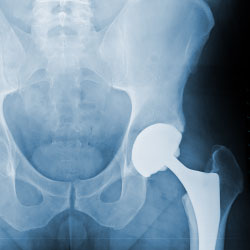The US Drug Watchdog, an independent consumer monitor, said that “Because many individuals who received a DePuy ASR hip implant do not want to go through revision surgery, they do not complain.” It was reported in various news reports that the DePuy recall has affected its former spokeswoman, who has filed complaints against the product and who stand different from the several others who opted for inaction.In August 2010, the DePuy ASR hip replacement system was recalled by Johnson & Johnson subsidiary DePuy Orthopedics after it was discovered that the device have a high failure rate. Released in 2003 under the 510(k) approval process of the US Food and Drug Administration, the device was rapidly adopted by surgeons despite the absence of a premarket trial. Approximately 93,000 devices were implanted in patients worldwide.
The Australia and UK joint registry detected a failure rate of more than 50% of the average rate of all-metal hip implants. Reportedly, recipients of the device experienced complications from hip replacement. Included in the symptoms of a failing hip implant are lack of flexibility, general discomfort, swelling of the hip, pain in the hip region, and difficulty in walking.The metal-on-metal device may expose patients to metal poisoning or metallosis, as debris of the device flake off and enter the bloodstream. Metallosis can cause soft tissue damage, inflammatory reactions and bone loss.
On the NBC Nightly News, the US Drug Watchdog was quoted as saying "There is a huge problem with metal-on-metal artificial hip implant devices.” "We could have tens of thousands of DePuy hip implant victims in the US, and because of age, or not wanting to go through a hip replacement revision surgery, they say nothing,” added by the group.
In the United States, the US Drug Watchdog is a premier pharmaceutical watchdog. US consumers’ right to a safety prescription medicine and medical devices is upheld by the group.
Various sectors of the US and other countries, like Australia and UK, are advocating for patient safety and a tighter regulation on the release of medical devices. The company, DePuy Orthopedics, is also taking actions concerning their device through a hip replacement recall. In addition, patients and surgeon must be mindful of the hip implants and report promptly any symptoms of failure.
Reference:
earlsview.com/2011/10/07/us-drug-watchdog-says-its-urgent-they-identify-all-recalled-depuy-asr-hip-implant-recipients/
usdrugwatchdog.com/index.htm
news.yahoo.com/us-drug-watchdog-says-urgent-identify-recalled-depuy-183018774.html
www.arthritistoday.org/news/asr-depuy-hip-replacement-recall078.php
The Australia and UK joint registry detected a failure rate of more than 50% of the average rate of all-metal hip implants. Reportedly, recipients of the device experienced complications from hip replacement. Included in the symptoms of a failing hip implant are lack of flexibility, general discomfort, swelling of the hip, pain in the hip region, and difficulty in walking.The metal-on-metal device may expose patients to metal poisoning or metallosis, as debris of the device flake off and enter the bloodstream. Metallosis can cause soft tissue damage, inflammatory reactions and bone loss.
On the NBC Nightly News, the US Drug Watchdog was quoted as saying "There is a huge problem with metal-on-metal artificial hip implant devices.” "We could have tens of thousands of DePuy hip implant victims in the US, and because of age, or not wanting to go through a hip replacement revision surgery, they say nothing,” added by the group.
In the United States, the US Drug Watchdog is a premier pharmaceutical watchdog. US consumers’ right to a safety prescription medicine and medical devices is upheld by the group.
Various sectors of the US and other countries, like Australia and UK, are advocating for patient safety and a tighter regulation on the release of medical devices. The company, DePuy Orthopedics, is also taking actions concerning their device through a hip replacement recall. In addition, patients and surgeon must be mindful of the hip implants and report promptly any symptoms of failure.
Reference:
earlsview.com/2011/10/07/us-drug-watchdog-says-its-urgent-they-identify-all-recalled-depuy-asr-hip-implant-recipients/
usdrugwatchdog.com/index.htm
news.yahoo.com/us-drug-watchdog-says-urgent-identify-recalled-depuy-183018774.html
www.arthritistoday.org/news/asr-depuy-hip-replacement-recall078.php


 RSS Feed
RSS Feed